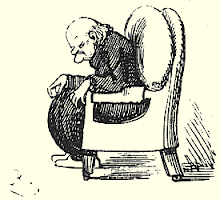See, it's not that I don't want to be interested in the political ramifications of the nation having our rating lowered and interest rates rising and other terrible shit happening-- I want to be interested in that. But it's a little too... I don't know... macro for me.
I'm not a macro kind of guy.
I'm more micro.
Remember Micro Machines? They're more my speed. I could fix a Micro Machine if it broke. If, say, one of its wheels fell off, I could deal with that. If my big-boy car broke, 9.9 times out of 10, I couldn't fix that.
Why?
Because that's a macro machine. Mac. Roe.
Macro things are so much harder for me to conceptualize because, I feel, I don't have the appropriate tools in my toolbox. Actually, I'm not even sure I have the toolbox. In fact, let's be honest-- I don't have the toolbox. I just have a hammer and a wallpaper scraper and a couple of other shit tools kind of just strewn about in random places in my brain. And you can't do much on the macro level with a hammer and a wallpaper scraper and a couple of other shit tools kind of just lying about.
You certainly can't accurately grasp all of the key concepts of the current debacle revolving around the nation's debt and the geopolitical consequences that are both imminent and far-reaching should we really boehner this up.
So I retreat inward. To the world I understand. To... my kitchen.
We've got drop-ceiling in there, and God is it fuckall awful. Drop ceiling is wretched in church basement daycares and soul-violating cubicle-farms. It has no business being in houses. Residences. Places where people are supposed to enter and be moved.
Mark Twain said of his Hartford house, "We could not enter it unmoved."
When I enter our kitchen and look upward, I want to move my bowels. But I wouldn't do that, because my wife and I painstakingly laid down cork flooring all by ourselves (okay, with some help from her father) and I wouldn't dream of befouling said flooring with my arse-leavings.
But all this talk about the debt ceiling on NPR and such has really solidified the fact that this ceiling's got to go. Otherwise, there will be consequences, and consequences that I can actually understand.
Those consequences are, but are certainly not limited to:
* feeling the continued urge to move my bowels upon entering our kitchen and looking up
* feeling like I'm in the film "Office Space" when I enter our kitchen and look up, you no-talent ass-clown
* feeling the urge to cut myself, bang my head against the wall, burn myself with a cigarette, swallow a toothbrush, rub Brillo pads against my wrists, and engage in other self-destructive behaviors when I enter our kitchen and look up
* feeling the urge to prevent, at all costs, people I love and/or care for and/or respect and/or can see from entering our kitchen and looking up
* feeling the urge to smear peanut butter and deer viscera all over the drop-ceiling and unleash thirty wild brown bears clamor all over each other for the honor of being the first to eat significant portions of said drop-ceiling
* feeling the urge to invite over local clergy to exorcise the drop-ceiling
* feeling the urge to move my bowels while I blog (guess I should be doing this on my smartphone)
Just remember, kids: though the debt ceiling is important-- probably-- there are other ceilings to consider. Like mine. And that thing Michelangelo did or whatever.
I hate our ceiling. You can't come over to our house and play.
Ever.













